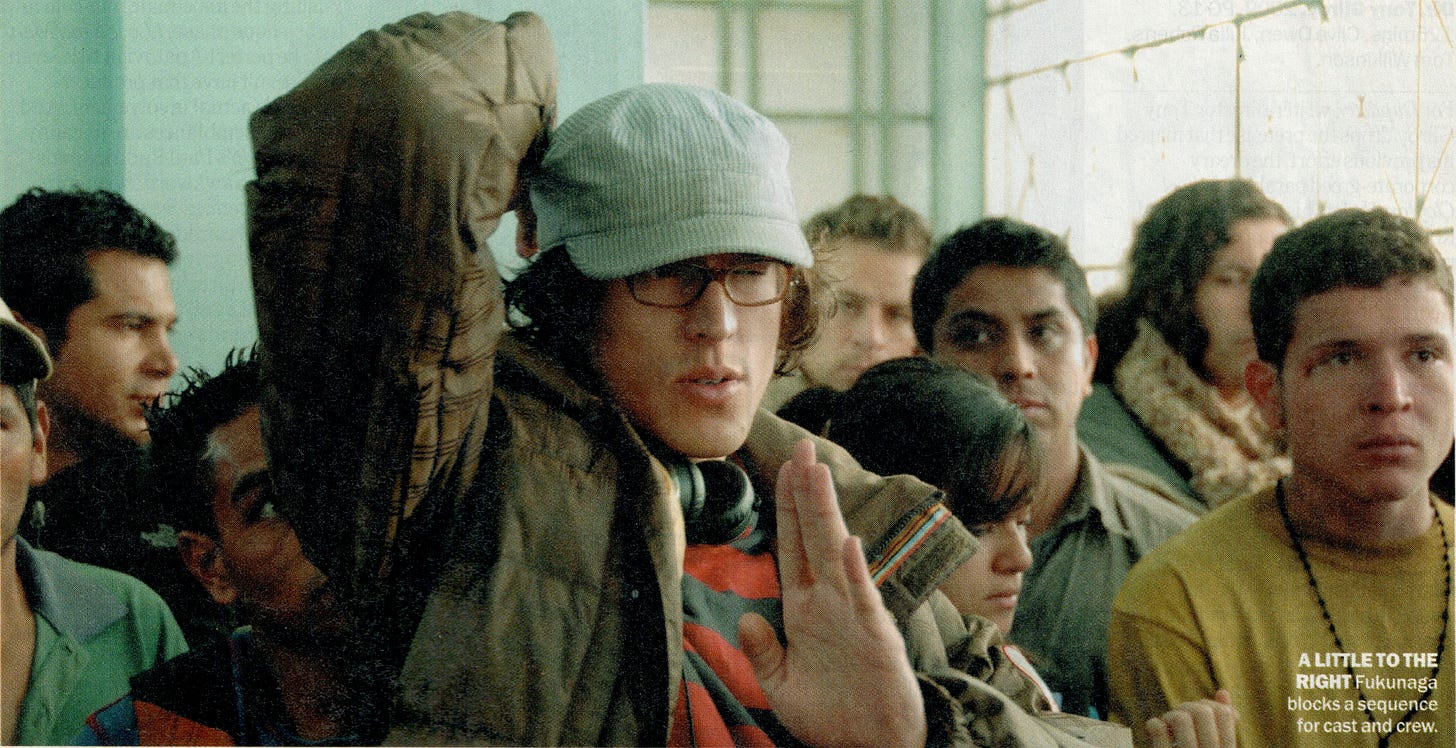Sin Nombre's Cary Joji Fukunaga learned his lessons well. By Keith Uhlich
An encounter with legendary film editor Walter Murch set Cary Joji Fukunaga’s career path in stone. The 31-year-old writer-director, whose first feature, Sin Nombre, opens on Friday 20, met Murch at a screening of the reedited Touch of Evil; afterward, he was invited to observe the final sound mix on The Talented Mr. Ripley. It was there that the younger artist received a short, sweet and salient bit of wisdom from his elder: “Travel,” Murch said.
California-born Fukunaga took that instruction to heart. A year in Asia followed, only after which he started crewing and working his way toward the director’s seat. “There was no reason I should be rushing out to intern at a company just because I wanted to make movies,” he says of his mind-set at the time. “I should be having experiences in the world and be able to comment on them when I end up directing films.” Fukunaga talks fast, but his words have a preternatural confidence. I get the sense, as we sit down to chat in a Waldorf-Astoria suite, that he could walk blindly into a roomful of producers and convince each and every one of them that he was a born filmmaker.
Sin Nombre is proof positive. It’s an arresting debut, a movie that moves—swiftly, fatalistically—to a violent and bittersweet finale. It opens in the vein of a Meirelles-Iñárritu exposé, though Fukunaga is quick to distance himself from that aurally and visually hyperactive school of filmmaking. Rather, he calls upon more classical antecedents, like John Ford and Anthony Mann, which makes sense considering he’s described Sin Nombre in various interviews as a Western. There are indeed some staples of the genre in evidence, from a climactic shoot-out to a horizon-receding train that carries a disparate group of characters north to the U.S.-Mexico border, though the film’s influences are clearly more personal than derivative.
Fukunaga traveled extensively through Latin America while preparing the script, and took the film’s title—which translates as “nameless”—from the crosses that commemorate the unknown immigrants who died during their treks to the States. When I first watched the film, the idea of namelessness seemed particularly relevant to the character of Sayra (Paulina Gaitan). She’s a Honduran immigrant who closes out Sin Nombre by identifying herself to a telephone operator, though Fukunaga claims this potent structural endpoint was unconscious. “What I was conscious of was Sayra choosing family,” he says. “Your family is your identity. I think it’s interesting how we carry our fathers’ names in this culture, and whenever that line dies off that name dies off as well.”
Parallel to Sayra’s story is that of teenage gang member Casper (Edgar Flores), who goes on the run after revenge-killing his leader. He and Sayra form a tempestuous bond, acting like tentative adolescent romantics one moment and fierce sibling rivals the next. Fukunaga’s meaning is clear: In the absence of familial ties we seek them out.
Fukunaga himself was sought out by producer Amy Kaufman after she viewed his 2004 short, Victoria para chino. “I was so sure I wanted to work with Cary [on Sin Nombre],” she explains over the phone, “that when I was told I couldn’t have the script, I found a way to get it.” Kaufman’s praise for Fukunaga is effusive. “We have such a similar way of looking at things,” she says. “He can talk about his project in a way that is so inspiring that you just know he’s going to make a great movie.”
The jury at 2009’s Sundance Film Festival concurred, awarding Sin Nombre honors for cinematography and directing, something Fukunaga speaks of a bit timidly. “It’s great validation to win an award,” he says, before adding, “I’m not sure how that changes things.”
It’s already helped him get follow-up projects started; he’s currently developing films for both Focus Features and Universal. One is a science-fiction feature, and the other is a musical that has caught the close attention of Focus’s head, James Schamus, who sends him several films a week as study guides. “I’m in the school of James Schamus now,” Fukunaga laughs. Between Murch and Schamus, he certainly knows how to pick his mentors.
Sin Nombre opens Fri 20.



